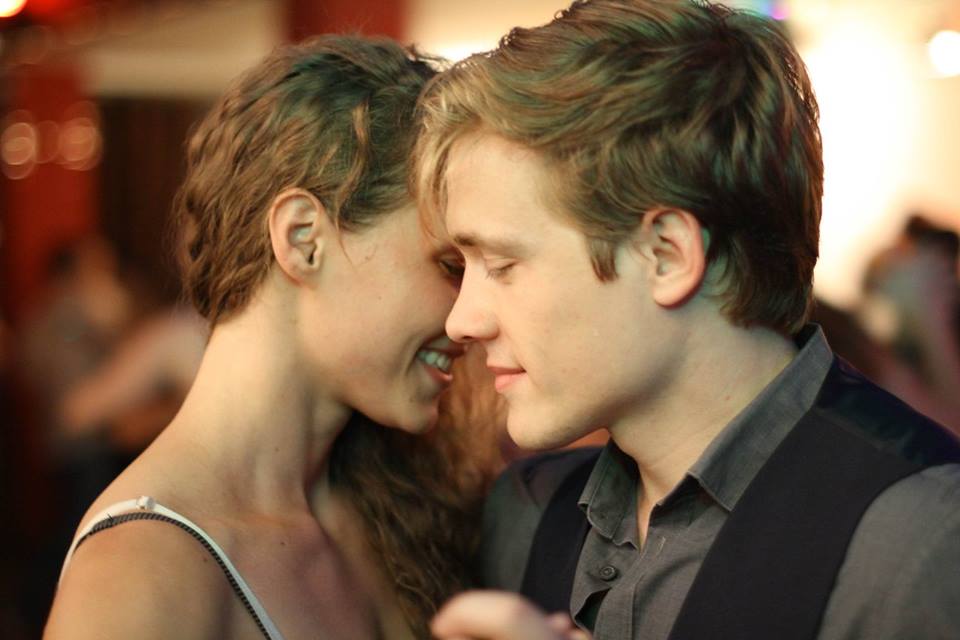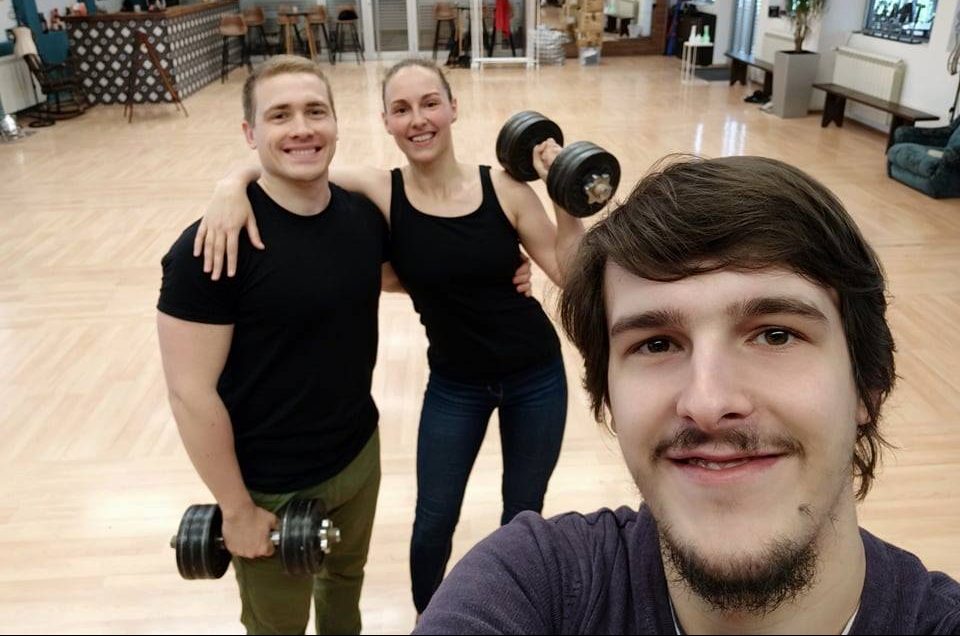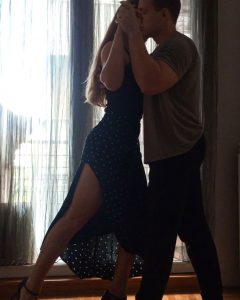To say that I don’t like the stage would be an understatement of the century. The moment I graduated from the high school of music, I felt immense relief after eight years of equally immense fear. The feeling that I could never live up to my teachers’ expectations, that I’d just waste other people’s time with my performances, the feeling that I would completely expose my soul through music – all of it disappeared the moment I started my university studies. I felt better and more natural in the ring, fighting, mastering martial arts. I wasn’t afraid as much when I learned defending myself from a knife attack, or came home with my neck covered in bruises learning how to defend myself from choking.
It’s strange how life pushes you to overcome new fears by facing the old. In heels, at that. And so, tango came, smiling, handsome, with his gaze clear, he playfully puffed up his chest inviting me for a dance on one sizzling, summer day. In the several years getting to know tango, and myself through it, I learned that insecurities are merely disguised opportunities to work on yourself.
Then the pandemic took over, we bumped into Darko in a local park, and we came up with the idea that Nikola and I should prepare a performance, as two wonderful antitheses to tango that spend every waking moment lifting weights, on the punching bag, or sparring. So how does one resist such a challenge?

A cabeceo for the performance
The thought that I’d once again step out onto the stage, this time not alone, brought on a few strange emotions, starting with that familiar fear, all the way to excitement for not immediately rejecting the opportunity to overcome my insecurities.
In the meantime, we had several lessons with joyful Luka, who would tirelessly put up with all of our questions, clumsiness, falling down, and wouldn’t allow us to not have fun, thus completely destroying my past perception of what preparing for public performances should look like.
Just imagine, you come to your class, and your instructor devotes all of his attention to you and your partner, there’s not a single moment when you can slack off, so you give your best, because someone like Luka came to help you advance. He came there to share his knowledge, to help you improve your own abilities.
And imagine that, it’s wonderful. There’s no tension, no malicious criticism, just plenty of positive energy, constructive questioning, and so much love.

What is a performance, really?
From my perspective, a performance has always been a responsibility, simply because it used to be a mandatory segment of my schooling. I had the obligation to prepare a musical program, solo as well as in chamber music, to perform at various celebrations around town, and to compete occasionally. While we’re on the subject, I can’t stand the notion of competing. The very idea that it’s necessary to perceive your peers and other kids as opponents is completely insane to me. The idea that someone’s artistry can only be valued when compared to that of others, and in that process make someone feel miserable, less worthy, and less valued.
This time, a performance is a way to face my insecurities, to make people dear to me laugh, maybe make someone proud – especially those who know how some of my musical performances used to look like. A performance has now transformed from a shapeless indigo monster into a curious octopus playfully solving mathematical tasks in its head while discovering all of its own hues.
But most of all, a performance is not just about that one final act that awaits at a milonga, but it encompasses the entire process of preparation, self-development, couple work, and challenges that pop up on the way to the dance itself. Now, I’m afraid and eagerly anticipating that performance that will finally be something completely different from what I’ve known so far.


So little time, so many lessons
Nikola is an open, curious man born for the stage and public performances. I love milongas where I merge with the crowd and silently invite different partners to the dance floor. His courage helps me express myself and enjoy the process. What has surprised me the most is the fact that in so little time, we’ve learned so much about the dance itself and about ourselves. Here are a few ideas that have flooded my mind like an avalanche and completely shifted my self-perception.
- A dance is not meant to be perfect. I remember thinking to myself that I wasn’t good enough to perform, simply because I’d never dance well enough, especially not like, let’s say Sara Grdan. I’ve soon realized that this is a completely misguided way to perceive dancing, because I watch every performance with enormous admiration and respect, but I don’t look for flaws, nor do I expect it to be flawless. Surely, all of those wonderful couples don’t step onto that stage only to make us feel less worthy. They want to inspire and encourage us to dance, too.
I would never want for someone to see us dancing and think that our performance is in any way unattainable. Not just because it’s simply impossible, but because I want people like me, insecure, scared, reserved, those who always doubt themselves, to feel that it’s alright to make mistakes. That it’s beautiful to make mistakes. That those mistakes in dancing are as normal as much as they are a part of life.
- This is not a competition, although it is a competition with yourself, if you so choose to believe. It’s a chance to realize some of your imperfections and to work on them with love, just like you’d lovingly help a child (the one in you, in this case) solve a puzzle or make their very first imaginary mud lunch. Not because it’s your goal to eliminate those imperfections, but to mold them, sculpt them into something entirely your own, beautiful, loved, yet imperfect.
- Fear doesn’t make you weak, on the contrary. Fear can be a way to tame your ego, the one we all have and to which we often give in. Fear is that inner voice that tells you what some of your unrealistic expectations are, as well as the expectations you unrightfully ascribe to others, even though no one shared them with you. I guarantee that Luka and the entire crew behind this amazing story will come to that performance, and every other performance beside that one, with their heart and soul open, filled with support and even more love. If that’s their approach, why shouldn’t mine be the same, or yours? Why wouldn’t I be able to learn how to send myself off to that performance with joy, support, and love, no matter how it turns out?
The only conclusion that makes any sense? We can’t wait for each new embrace in which we’ll create a new sensation, and a new dance.
Author: Sara Novičić

